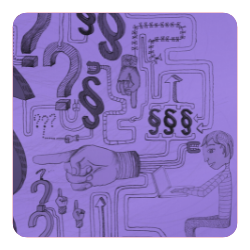Positive vibes: self-transfiguration in professional networks
Some people's lives read like a picture book – at least if you believe in social media. What applies to Facebook, Instagram and Co is also true for business networks like Xing or LinkedIn. Especially after the pandemic, the positive mood has literally exploded in these networks as well. Meeting new colleagues in person for the first time, the first conference, the first team event, the first time back at the airport with a briefcase – the euphoria seems to be almost unlimited for some; firsts and superlatives are the trend. However, all the positive vibes that are being circulated on social networks also have their downsides: Toxic positivity – but what is that? And why exactly can it become a problem? – We clarify.
Between deception and self-deception
Toxic positivity describes a condition in which the positive attitude becomes a compulsion and thus takes on harmful, literally toxic dimensions. When positive thinking becomes the only permissible solution, this leads to negative feelings being suppressed and potential conflicts being avoided rather than actively addressed. At the same time, it tempts the author of the post to self-deceive by transfiguring his or her own experiences on social media. It is precisely this forced situation that is created by the exuberantly positive underlying tone of social media.
Of course, now and then people also report negative experiences or personal setbacks – but look closely and you'll see that these posts, too, usually seek to create a "you can do anything" or "what doesn't kill me just makes me stronger" mentality – another example of the profound danger of toxic positivity on social media. Toxic positivity, in other words, does just the opposite: it conveys a false reality and, in the worst cases, can even make people sick. This is particularly problematic in professional networks. After all, bad experiences are part and parcel of professional life. But what can be done about it?
Mindfulness and a conscious approach to professional networks
To ensure that positivity does not become a danger, a conscious approach to and consumption of social media content is required. Users must be aware that these media today primarily serve one purpose: Self-promotion and self-promotion. They cannot and do not want to convey a true reflection of reality. At the same time, it must be acknowledged that a positive attitude, which is basically not wrong and is even desirable, cannot solve all problems. Positive thoughts are good, but they are not the solution to everything. Instead of falling for the imposed positivity of social media, it is better to practice conscious mindfulness. Because that's the only way to strengthen your own psyche in the long term and maintain a positive relationship with your environment.































